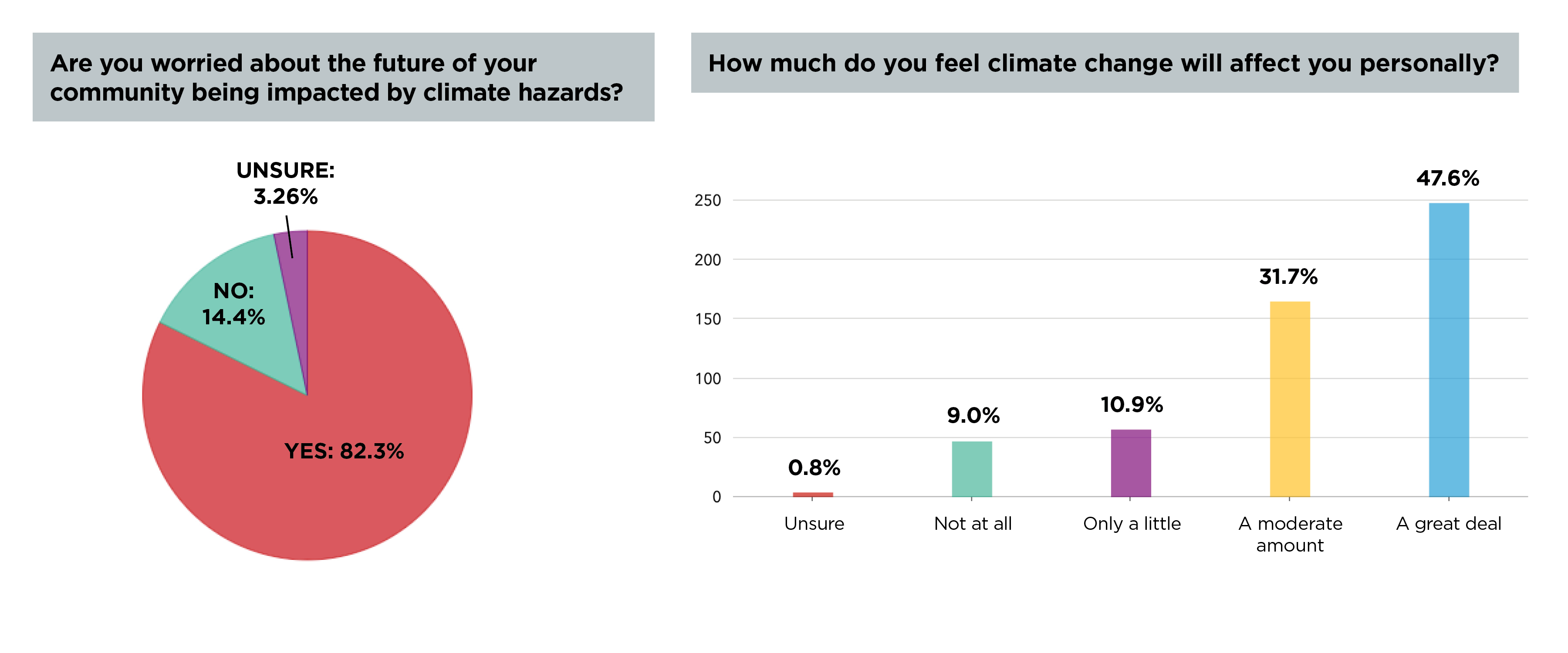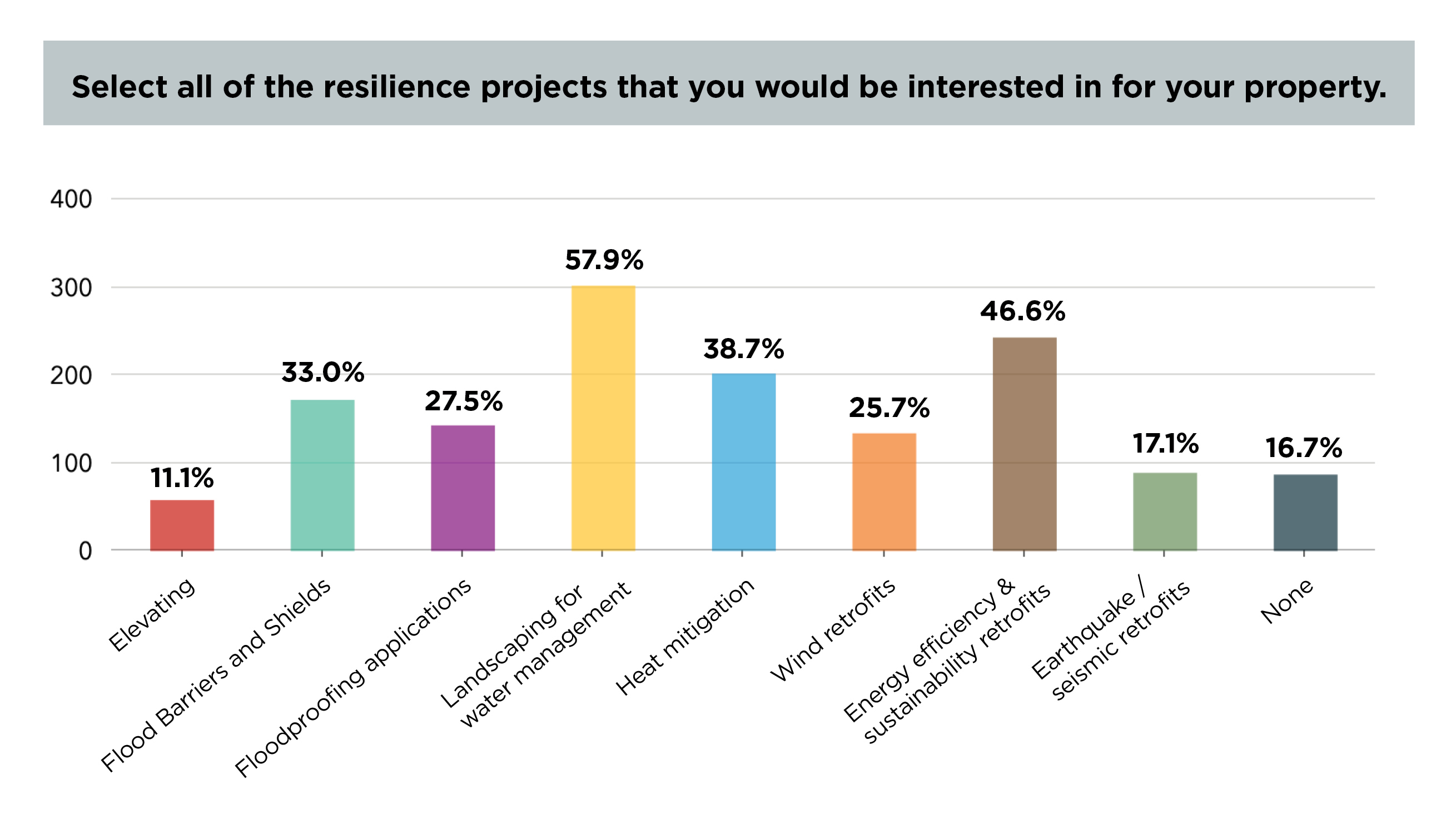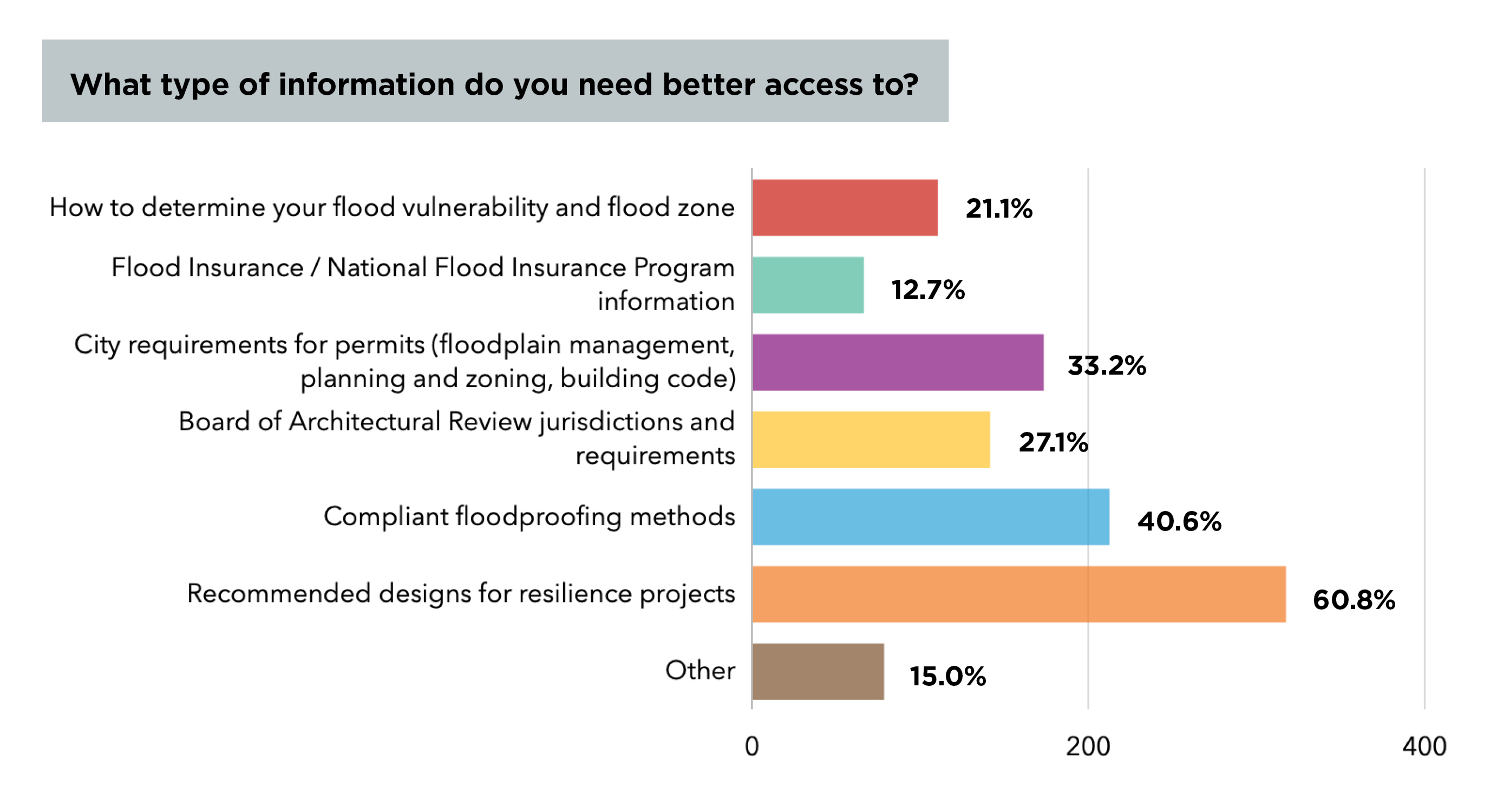Climate Resilience Guidelines
Writing the first resilience guidelines for Charleston property owners
preservation-admin , February 7, 2024

This past fall, many of you participated in the Preservation Society’s survey to inform the development of the Climate Resilience Guidelines for Property Owners. And we want you to know: Your voices were heard!
After analyzing hundreds of responses, it’s clear that Charlestonians are feeling climate impacts more than ever and want to do their part to make their communities more resilient.
Being the first resource of its kind to provide resilience guidance for neighborhoods across Charleston, public input is a critical component of the process. And since a major project objective is to create equitable recommendations that can be utilized by all citizens, we thank you for your feedback to help us create the most effective resilience toolkit possible.
From September to November 2023, the detailed survey collected information about resident experiences with climate hazards, such as flooding, extreme heat, and severe weather events, and asked how the Climate Resilience Guidelines could best support concerns and needs for enhancing the resilience of private properties. We received over 520 responses from people across the Charleston area. Here are some of the key takeaways:
1. Attitudes about climate hazards: Overwhelmingly, respondents are worried about their communities being impacted by climate hazards (82.3%), and feel that climate change will impact them personally a great deal (47.6%):
2. Priority resilience projects: The top three project types residents are interested in for their property include landscaping for water management (57.9%), energy efficiency and sustainability retrofits (46.6%), and heat mitigation (38.7%)
3. Resource needs: In order to pursue a resilience project, respondents feel they need improved access to information on recommended designs for resilience projects (60.8%), compliant floodproofing methods (40.6%), and city requirements for permits (33.2%), among other areas.
We intend for the Climate Resilience Guidelines to directly address these needs. In addition to graphically showcasing appropriate resilience project designs, the document will also help walk residents through the process to obtain permits for the work. Also, in response to priority project types expressed in the survey, we are first focusing on “simple improvement projects” anyone can take on to enhance their property’s resilience to water, wind, and heat. And better yet, these recommendations will be broken down into easy-to-digest sections, like roof systems, window and doors, walls and exterior cladding, foundations and crawl spaces, landscaping, and energy efficiency upgrades.
The guidelines will be crafted over the coming months and there will be more opportunity for citizen engagement as they take shape. We can’t wait to get this new public resource into the hands of Charleston citizens. Stay tuned for more information about next steps.
You can read more about the Climate Resilience Guidelines on our website, and contact Erin Mehard, Director of Preservation & Planning at emehard@preservationsociety.org with any questions.



